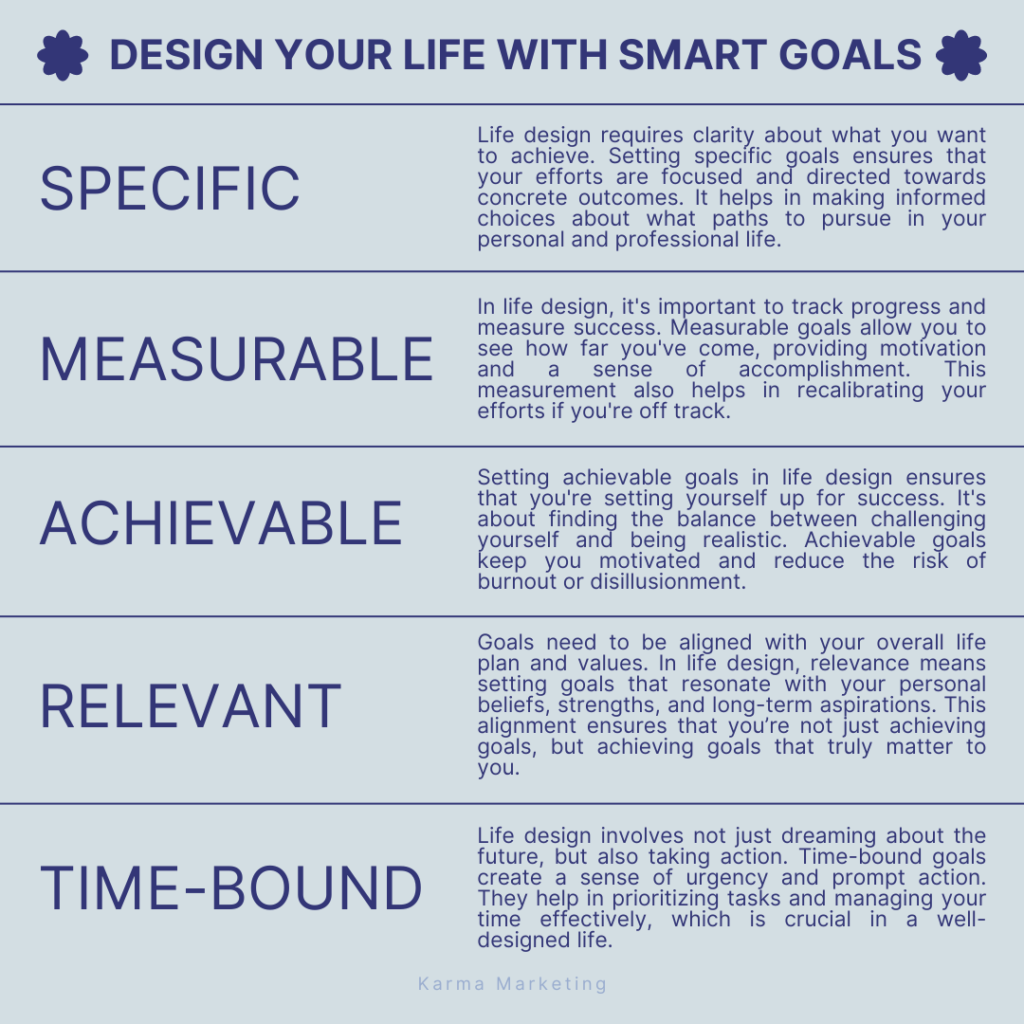When the Feeling of “Not Being Enough” Drives the Obsession with Self-Improvement
We live in a world obsessed with optimization, where self-acceptance is a struggle. From our bodies to our careers, we’re constantly bombarded with messages telling us we need to be better, faster, stronger, more productive.
The self-help industry promises constant betterment, yet for some, the pursuit of personal growth becomes driven by a deeply rooted sense that we are lacking. This relentless pursuit of self-improvement can be a powerful motivator that somehow morphs into a never-ending quest fueled by a gnawing sense of inadequacy.
When self-doubt takes over, self-optimization becomes compulsive rather than empowering. It whispers in our ears when we compare our resumes to seemingly perfect LinkedIn profiles, watch colleagues land coveted promotions or raises, or hear of others’ flashy new accomplishments. Doubts creep in about our skills, experience and potential for growth.
Where do these feelings of inadequacy stem from, and how can we move from a place of “not enough-ness” to self-acceptance?
The Hamster Wheel of “More” is the Goal
In recent years, the push toward constant self-improvement has grown dramatically. During the pandemic especially, when many faced long periods of isolation at home, people increasingly turned to online resources for advice. However, the huge amount of self-help content available may promote unrealistic ideals.
Despite our lives often being unpredictable and imperfect, there seems to be a widespread idea that we should always be optimizing ourselves and curating some perfect existence. The never-ending stream of tips and routines advertised online can give rise to unrealistic expectations about what an individual can realistically achieve on a daily basis.
Imagine a hamster on a wheel, running endlessly without ever reaching a destination. This is the metaphor for the “not-enough” trap. We chase one goal after another, believing that each achievement will finally quench the thirst for validation. But the finish line recedes with each step, leaving us feeling even more inadequate.
This obsession manifests in various ways:
- Constantly switching jobs, courses or industries in the belief that the “right” role exists where we’ll feel accomplished. But familiar doubts follow each transition.
- Overcommitting to the point of burnout, with little downtime to appreciate current wins. We believe only superhuman effort will fill the lack.
- Refusing leadership opportunities out of imposter syndrome, certain we’ll be “found out” as underqualified. Yet this holds our potential back.
- Perfectionism that prevents work from ever beginning for fear of mistakes. But learning comes from doing, not never starting.
- Reacting to all feedback as validation of core unworthiness rather than a chance to grow. Growth requires vulnerability, not brittle defensiveness.
The Self-Doubt Battle: Confronting Inner Conflict to Enable Self-acceptance
When was the last time you felt your best wasn’t good enough? It’s unbelievable how much power we give those critical voices in our heads. In our darker moments, our flaws seem to define us completely.
Feeling inadequate refers to having a sense of not being, or never being, quite good enough. It is a perception of personal deficiency, weakness, or lack of competence in some aspect of one’s life. When one feels inadequate, they view themselves as imperfect, flawed, or subpar in comparison to standards, expectations, or other people.
In those moments, it can feel like we’ll never measure up no matter how hard we try. We become our own toughest critics, finding fault in everything from our careers to our relationships. The doubts start whispering, reinforcing our belief that our perceived shortcomings are deeply rooted and that we are powerless to change.
We narrowly define our worth by how well we meeting society’s rigid standards. Any imperfection or mistake is seen as proof of our deficiencies. The harsh inner judgment leaves little room for compassion. It plagues us with constant second-guessing, self-criticism and a lack of confidence in our capabilities or value.
The next time thoughts of not being good enough surface, see if you can gently inquire where they originate rather than instantly believe them. Here are some thoughts on the main reasons why we may feel inadequate:
Comparison: When we constantly compare ourselves with others, it creates an unrealistic benchmark for our own achievements which then gets internalized leading us into believing that unless our accomplishments match theirs – then we’re never doing enough. This habitual tendency can make one feel as though they need to outperform everyone else around them in order to be deemed ‘good enough.’
The reality is that each individual has a unique background, strengths, struggles, and path in life. When we measure our worth based on superficial metrics like achievements, looks, or popularity, we overlook the multidimensional nature of human experiences and fail to appreciate our own qualities.
Rather than drawing narrow conclusions from cursory observations of others’ highlight reels, it is better to focus on personal growth and stay true to our inherent value. Remember, everyone curates their online persona, and it’s not always an accurate reflection of reality.
Past traumas: Past experiences often shape our self-perception leading into deep seated beliefs about ourselves where we start believing negative narratives set by others during childhood days – this then gets internalized making us question our worthiness later on in life when we start doubting our abilities more closely.
While the hurts of trauma may continue to linger, you have persevered and shown tremendous strength simply by continuing to move forward each day. Be gentle with yourself as you reflect and work through complex emotions.
Healing is not a straight line but a journey. Some days may feel two steps back, others a great stride ahead. It may help to reconnect to your inherent worth through hobbies, creativity or helping others – to feel purpose beyond past wounds. With time and compassion for yourself, you can overcome even deepest doubts to see again with eyes of self-love.
Protip: Integrating SMART Goals and Life Design Principles for a More Assured Growth Path
Setting achievable goals is key to overcoming feelings of inadequacy and ensuring that your efforts lead to achievable success. Sometimes goal-setting backfires, which is why it’s important to understand the link between ambition and self-doubt. Here are common scenarios showing how setting goals can lead to feelings of inadequacy:
- Chasing Unrealistic Goals: Seeking external validation through ambitious goals can lead to self-doubt when these goals are unmet.
- Cultural Pressure for Constant Achievement: The societal push for continuous success turns rest into perceived failure, creating an unattainable target.
- Vulnerability in Goal-Setting: The risk of criticism or judgment when goals are not perfectly achieved sets people up for feelings of inadequacy.
- Loss of Joy in the Process: A rigid focus on end results overlooks the satisfaction from small victories, leading to stress over non-linear progress.
- Comparative and Competitive Mindset: Measuring success against others’ timelines exacerbates feelings of never being good enough.
- Vague Goals and Uncertainty: Immeasurable goals lack clear success indicators, fueling uncertainties and self-critical thinking.
- Equating Goals with Self-Worth: Valuing oneself only through achievements can erode self-acceptance, making any delay a question of personal value.
- Neglecting Self-Care for Productivity: Prioritizing constant productivity over downtime leads to stress, burnout, and reinforced feelings of inadequacy.
The SMART framework provides a structured approach to goal-setting, which is highly beneficial. However, often we set goals without a long-term vision of how we want to live our lives. By integrating the clarity and focus of SMART goals with the holistic approach of Life Design, we can address the roots of self-doubt. This synergy transforms our aspirations into a path that leads to not only achievement but also nurtures self-acceptance and confidence.
With SMART goals, targets are Specific, Measurable, Achievable, Relevant, and Time-bound. We make our aims very clear and specific, so we know exactly what we’re working towards. By setting goals that are both meaningful and achievable within a defined timeframe, we lift the pressure and focus on what truly matters on an intentional scale.

Moving beyond vanity metrics and external reasoning, we connect our actions to our inner ‘why’, ensuring that our goals align with our deeper values and purpose. Growth is not a straight line; it includes valleys as well as peaks. Recognizing this, can we make it easier to grow without harsh judgment? Imagine if personal growth focused less on fixing flaws and more on nurturing well-being, even just for today. Overall, adopting an approach that is kind yet dedicated to ourselves seems to be the most effective way forward.
How to Break Free from the Vicious Cycle of Inadequacy
The irony is that this relentless pursuit of “enough” often leads to the opposite. We become disconnected from our authentic selves, sacrificing genuine well-being on the altar of self-improvement. So, how do we break free from this cycle?
- Acknowledge the source: The “not-enough” feeling often stems from deeper insecurities or unresolved past experiences. Identifying these roots can help us address them directly, rather than seeking external solutions.
- Redefine success: Move away from societal metrics and embrace personal values. What truly matters to you? Define success on your terms, not someone else’s.
- Practice self-compassion: We are all works in progress, deserving of love and acceptance, regardless of our achievements. Feeling worthy and good enough as a person regardless of what you do or accomplish keeps your determination and willpower strong even when facing obstacles or setbacks.
- Seek support: Surround yourself with people who value you for who you are, not your accomplishments. Build a community where vulnerability is celebrated and growth is encouraged.
- Embrace the journey: In the quest for self-improvement, every step forward counts. Celebrating small victories and progress helps in maintaining motivation and acknowledging our efforts, reinforcing the idea that we are enough at every stage of our journey.
Finding Fulfillment Through Unconditional Self-Acceptance
While continually striving to better ourselves has benefits, an endless pursuit of perfection often stems from a lack of self-acceptance. True progress lies as much in being present for each moment as it does achieving milestones.
When we define our worth through how productive we are or how close we are to some ideal image, it’s difficult to ever feel “enough” as there is always room for more progress. However, setting goals from a place of caring for ourselves, not criticizing ourselves, allows room for appreciation of life’s journey regardless of external markers of success.
Self-acceptance means embracing ourselves unconditionally, flaws and all. You feel at peace with where you are now while also excited about growth.
Self-improvement is healthy in moderation, focused on personal enrichment rather than escaping inner discomfort. Goals can then be pursued from a place of empowerment rather than lack.
With self-compassion as a compass instead of self-criticism, we can shape balanced, meaningful change guided from within not without. In this way, the drive for betterment stems from curiosity, care and enrichment – not an escape from inadequacy.
Karma Wisdom | Curated research written by Anya Junor
